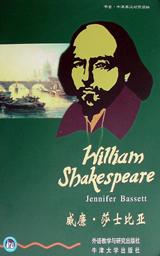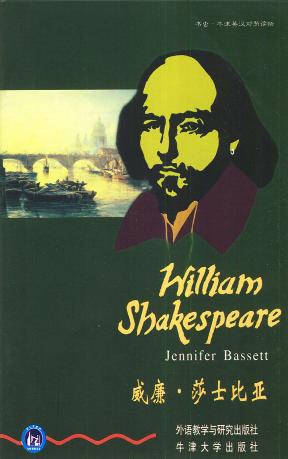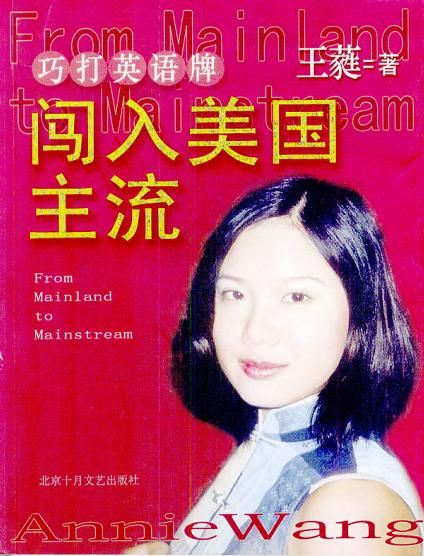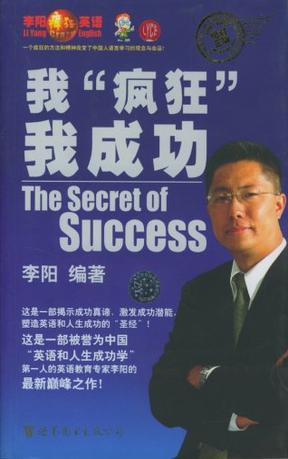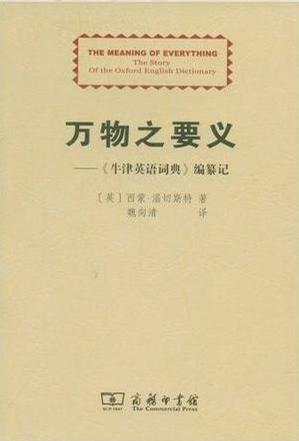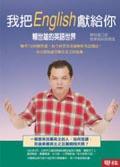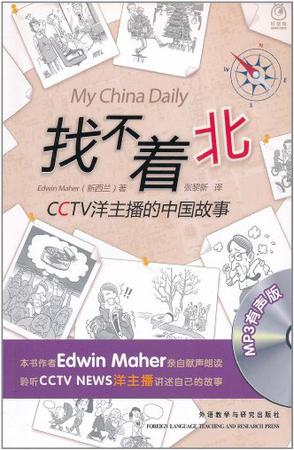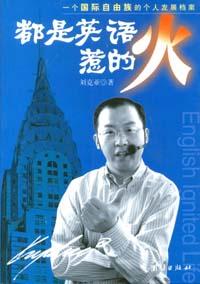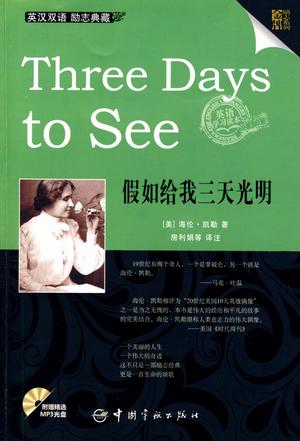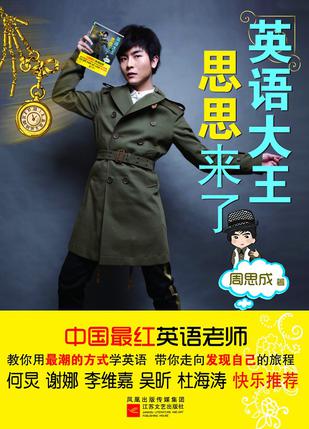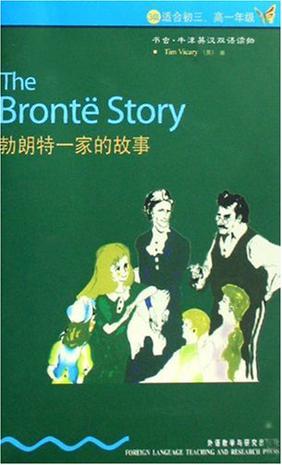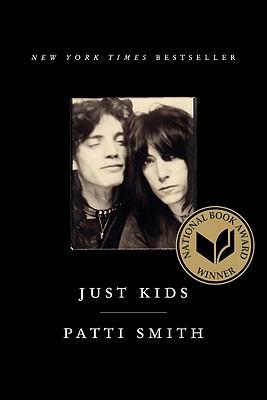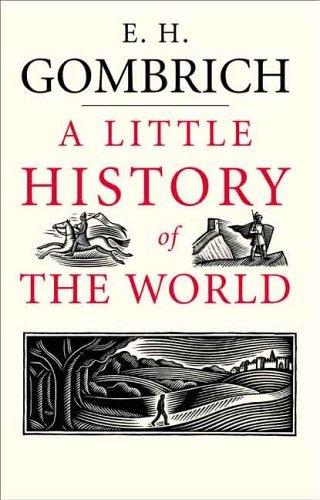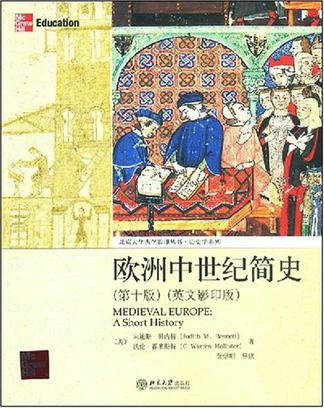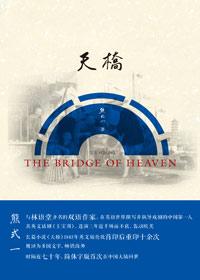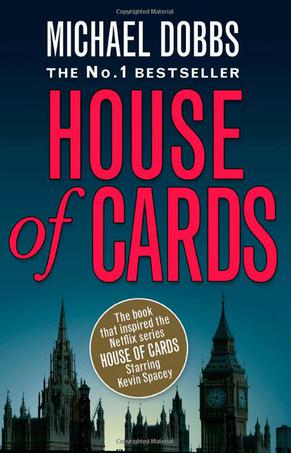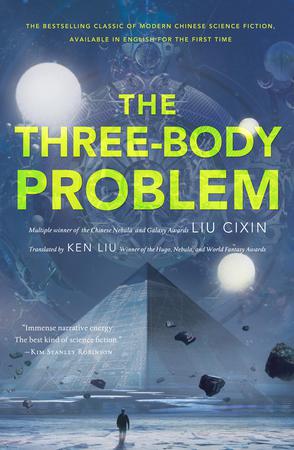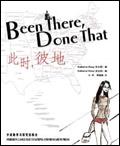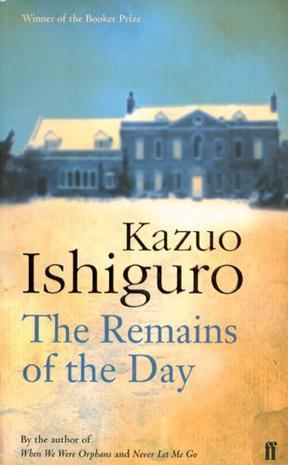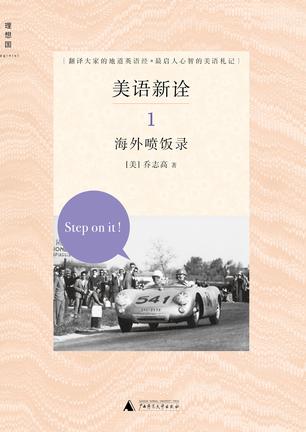欢迎来到相识电子书!
标签:英语
-
威廉.莎士比亚-(2级适合初二.初三年级)(书虫.牛津英汉汉语读物)
1578年艾汶河畔的斯特拉福镇。有位男孩坐在书桌旁专心地学习,他认真听课、拼命看书。可他在想些什么呢? 1587年伦敦。一位年轻人首次到伦敦谋生。他听着闹、市的喧嚣声,看看伦敦塔雄伟的大墙,望着泰晤士河的淙淙流水。“静谧的泰晤士河,瀑潺地流淌,直到我唱完心中的歌。” 1601年伦敦。泰晤士河上的船夫对人群大声喊着:“快来,快来,快来呀!‘环球剧院’快挤满人啦!”2000多观众渡过河,前来观看莎士比亚的最新一部戏剧――(哈姆雷特》。 这本讲述莎士比亚生平故事的书是由托比叙述的。托比不是一个真实的人物――或许莎士比亚也曾有过这样一位朋友,不过,我们无法确知。但是书中的其他人物历史上确有其人。他们非常熟悉这位演员、诗人兼剧作家莎士比亚。他们称他“莎士比亚缙绅”,都认为他是英国最杰出的诗人。他的朋友本・琼生曾这样写道: “他不属于一个时代,而是属于所有的时代。” -
威廉·莎士比亚(附磁带)(书虫·牛津英汉对照读物)
1578年艾汶河畔的斯特拉福镇。有位男孩坐在书桌旁专心地学习,他认真听齐全、拼命看书。可他在想些什么呢? 1587年伦敦。一位年轻人首次到伦敦谋生。他的着闹市的喧器声,看看伦敦塔雄伟的大墙,望着泰晤士河的淙淙流水。“静谧的泰唔士河,潺潺地流淌,直到我唱完心中的歌。” 1601年伦敦。泰晤士洒上的船夫对人群大声喊着:“快来,快来,快来呀!‘环球剧院’快挤满人啦!2000多观众渡过河,前来观看莎士比亚的最新一部戏剧——《哈姆雷特》。 这本讲述莎士比亚生平故事的书是由托比叙述的。托比不是一个真实的人物——或许莎士比亚也曾有过这样一位朋友,不过,我们无法确知。但是书中的其他人物历史上确有其人。他们非常熟悉这位演员、诗人兼剧作家莎士比亚。他们称他“莎士比亚缙绅”,都认为他是英国最杰出的诗人。他的朋友本·琼生曾这样写道: “他不属于一个时代,而是属于所有的时代”。 -
闯入美国主流
《闯入美国主流》介绍了:一个资深报纸编辑的女儿,王蕤从小写小说,为青少年主持广播节目。像所有她们这一代人里最优秀的人一样,她的梦想是到美国读书……在加州伯克利大学读书,开始了她中国之外的经历。这种海外经历的积累使她能够在美国出版小说,并被誉为惊人的文坛新声。 -
我“疯狂”我成功
《我疯狂我成功》汇集了李阳英语和人生成功学思想的精华,它是以李阳自己的故事为经,以曾经给李阳带来心灵震撼和无穷力量的人物故事的纬,而编辑成的一本英语和人生的成功读本。通读《我疯狂我成功》,你会从这些催人奋进的经典事例中获得前进的动力!它激励着你从平凡、枯燥的生活中摆脱出来,感受久违的激情,疯狂地去梦想、去开拓、去挖掘潜能、去超越自我,从而实现你人生的理想! 我们相信,没有人比李阳更能激发出你积极向上的潜能! -
万物之要义
《万物之要义》以倒叙的方式,从《牛津英语词典》首版问世的1928年庆典来切人整个编纂事件的描述。本书基于英语民族与语言的发展状况而刻画《牛津英语词典》人物众生相,从而达到对《牛津英语词典》编纂事件的总体把握与描绘,有血有肉,点面结合,引人人胜。 本书作者温切斯特先生以擅长描述历史事件著称,其写作风格主要体现为优美的文笔、幽默的韵味、独特的视角,气势宏大但不忽略细节,常常通过有杰出影响的人物所表现出的个性气质与习惯来描述一些复杂的大事件,小中见大的手法运用灵活自如,可读性极强。 -
我把 English 獻給你-賴世雄的英語世界.
當爸爸看到我大專聯考的英文成績只有個位數「七分」時,他向我咆哮說:「英文只得了七分!你是怎麼考的,我閉著眼睛都不會比你考得差!」 良久,他吃力地站起來,對著我說:「賴家老大從此沒有了!我沒有你這個不爭氣的兒子!」 ——賴世雄 賴世雄出身平凡,際遇卻不凡。小時寒微,他幫家裡送麵、挑水、甚至殺豬。 懵懂忙碌,功課始終未達父親期望。 且看張夢瑞為你細細道來賴世雄如何藉英文翻身,多次成為托福最高分紀錄保持人,創辦常春藤英語教學雜誌,並闖下英語教學的一片江山。作者簡介 張夢瑞,湖南人,水瓶座。曾任《中國時報》社會組、《民生報》文化組多年,目前為自由撰稿人。報導作品〈何處是兒家〉、〈小丑〉曾被搬上電影及電視。擅長說故事,對上海、香港、台灣的國語老歌,下過深厚功夫蒐集及鑽研,並在電台主持老歌節目。著有《林旺與馬蘭的故事》(聯經)。 -
找不着北
《找不着北:CCTV洋主播的中国故事》内容简介:迷糊老外单枪匹马独闯中国;在这儿人生地不熟,对中文又一窍不通;却偏偏艺不高人胆大,东游西逛、四处历险没法沟通?没关系,可以唱歌呀,这可是国际通用语言。咦?那位指路的好心人为什么竖起三根手指?这在我的国家可不太礼貌哦。哎?中国的菜单怎么把动物的胃、肠子、脚丫子直接译成英文了?这叫人哪还有胃!77想知道这个可爱老外的更多新鲜事吗?那就翻开这本《找不着北:CCTV洋主播的中国故事》慢慢品味吧。 -
都是英语惹的火
《都是英语惹的火:一个国际自由族的个人发展档案》是一个由激情和梦想浇构的传奇故事;这是一部英语学习与个人发展水乳交融的励志书——一个懵懂而敏感的乡村少年不满贫穷和闭塞,一路闯荡,坚韧不拔,考大学,拼托福,成为万众羡慕的留学一族;直至屈辱的"牛粪事件",他才痛定思痛,卸下自卑的十字架,找到了通向成功的密码:从攻克美式英语起步,挺进全美排名第一的商学院,成为全美财富50强企业的北美市场总监;进而开拓个人发展培训事业,成为"国际自由族"的倡导者……刘克亚以极具魅力的文字讲述了自己不甘平庸、追求卓越的心路历程,他用自己的精彩人生演绎了跨越21世纪的全新理念:创造命运,从英语开始;跻身国际自由族的行列,刘克亚行,我们也行! 读者对象:为英语口语困惑、迷茫,甚至丧失信心的中学生 渴望用英语创造命运的大学生 立志在国外开拓人生天地的留学一族 追求跨越式职业发展的白领 担心孩子因学不好英语而影响前途的家长 -
英汉对照 金牌励志系列 Three Days to See 假如给我三天光明
《假如给我三天光明(英汉双语)》内容简介:Chapter2第二章:大病一场以后的头几个月发生了什么,我现在已经毫无印象。但我仍然隐隐约约记得,在母亲忙着做家务的时候,自己总是坐在她的腿上或是使劲抓着她的衣角不放。我用手去摸索各种东西,感觉别人的动作行为,借这种方式我慢慢学会了很多东西。后来,我特别渴望与人交流,于是开始做一些简单的动作,摇摇头表示“不”,点点头表示“是”,拉一拉别人表示“来”,推开表示“去”。如果我想吃面包了呢?我就会模仿切片和涂黄油的动作。如果希望母亲做冰淇淋当饭后的甜点,我就会作出拉开冰箱冷藏室后瑟瑟发抖的样子。而我的母亲,也总能想方设法让我明白她的意思。每次她希望我帮她拿什么东西过来,我都会立刻明白,然后飞快地跑到楼上或者她示意的某个地方去找。毫不夸张地说,在我的漫漫长夜里,我所感受到的所有光明和温暖,完全都源自母亲那因母爱而生的智慧。 点击链接进入: 金牌励志双语典藏•假如给我三天光明:重获信心与希望,珍惜生命中的美好(全新升级版) -
英语大王思思来了
《英语大王思思来了》是个性最张扬又最勤奋、虽受争议却被万千学生喜爱的长沙新东方思思老师,用其在新东方六年教授了十余万学子的教学经验总结出的关于英语学习和人生奋斗的宝典。它囊括了思思老师对高考、四六级、考研、雅思、托福、GRE等听说读写的全方位解读,甚至包括克服英语难关所需要的心态。思思老师认为,授人以“欲”是比知识本身更重要的东西。全书包括上篇、中篇、下篇、附录一、附录二。上篇“思思大王养成记”。思思老师与读者们分享了他“不完美也要精彩”的人生经历,他的人生本身就是由一连串精彩的励志故事组成。中篇“思思大王英语经”重点展示了思思老师独特的英语学习方法——“快乐英语学习”。无论是背单词,练听力,还是做阅读,学口语,都有实用又有趣的学习秘诀。下篇“思思大王考试决”是思思老师独家逢考必读、逢考必过的独家秘籍。思思老师如何面对受到争议的快女评委身份、如何回应彪悍人生不需要怀疑的老罗对他以及在新东方课堂跳过舞的老师们的批判、如何看待自己的时尚风格,又如何将时尚与英语学习结合,精彩内容尽在附录一的“对话思思老师”。附录二“他们说”中有快乐男生谭杰希的俏皮感言,还有新东方名师范超、孔玮、刘畅、陈仲凯、刘云龙等人的精彩点评,更有诸多媒体、经销商,还有广大思迷们的浓情赠言。 海报: -
勃朗特一家的故事
《书虫•牛津英汉双语读物:勃朗特一家的故事(3级)(适合初3、高1年级)》曾获第七届上海市中小学生优秀图书二等奖。《书虫•牛津英汉双语读物:勃朗特一家的故事(3级)(适合初3、高1年级)》讨论了天资到底是什么?它从哪儿来?通常人们认为天资是上帝赋予的,只给那些幸运的人。事实上,我们并不清楚究竟那些人是否算得上幸运。天资似乎并不能使人们幸福,相反会使他们远离人群,因为天资是一种不能共享的东西。 然而勃朗特一家的情形表明,天资被赋予了一个家庭。因为天资,这个家庭的成员远离尘世;离开了家他们就得不到快乐。而在家中,作为一个家庭,他们的天资却得以成长。是谁教会他们写作的?是他们自己!而且几乎没有人比他们写得更出色。《书虫•牛津英汉双语读物:勃朗特一家的故事(3级)(适合初3、高1年级)》不是他们写的,而是关于他们的故事。这是他们的父亲未曾写却应该写下的:一个关于他们家庭的故事,虽然他只拥有了那么短时间的家庭。 -
Just Kids
Smith's beautifully crafted love letter to her friend Robert Mapplethorpe functions as a memento mori of a relationship fueled by a passion for art and writing. Her elegant eulogy lays bare the chaos and the creativity so embedded in that earlier time and in Mapplethorpe's life and work. -
A Little History of the World
In 1935, with a doctorate in art history and no prospect of a job, the 26-year-old Ernst Gombrich was invited by a publishing acquaintance to attempt a history of the world for younger readers. Amazingly, he completed the task in an intense six weeks, and Eine kurze Weltgeschichte für junge Leser was published in Vienna to immediate success, and is now available in seventeen languages across the world. Toward the end of his long life, Gombrich embarked upon a revision and, at last, an English translation. A Little History of the World presents his lively and involving history to English-language readers for the first time. Superbly designed and freshly illustrated, this is a book to be savored and collected. In forty concise chapters, Gombrich tells the story of man from the stone age to the atomic bomb. In between emerges a colorful picture of wars and conquests, grand works of art, and the spread and limitations of science. This is a text dominated not by dates and facts, but by the sweep of mankind’s experience across the centuries, a guide to humanity’s achievements and an acute witness to its frailties. The product of a generous and humane sensibility, this timeless account makes intelligible the full span of human history. -
欧洲中世纪简史
欧洲中世纪,过去曾经被我们认为是在愚昧的教士主宰之下的“黑暗时代”,“半梦半醒的一千年”。20世纪的史学家们已经终结了这一神话。在当代英语世界,《欧洲中世纪简史》是一本准确、权威的中世纪史入门佳作。它以清晰的线索、全面的描述让读者看到了中世纪的光明与活力。 作者将中世纪史析为早期(500—1000)、中期(1000—1300)、晚期(1300~1500)三阶段。在第一阶段,罗马皈依基督教之后,古典文化与基督教文化、日耳曼文化相融合,促成了欧洲的诞生。查理大帝一度雄霸西欧。第二阶级是中世纪的盛期,经济起飞,城市兴起,政治文教发达,三百年问精彩叠现。第三阶段两百年,教廷分裂,英法百年征战,哀鸿遍野,疫病流行,一片颓败之势。而瘟疫过后,欧洲文化重又焕发生机,宗教革新,文艺复兴,科学革命,“理性时代”的近代欧洲呼之欲出。 本书由霍莱斯特教授始作于20世纪60年代,此后不断修订,内容与时俱进。霍莱斯特逝后,擅长妇女史的贝内特教授继续增补此书。第十版保持了原作结构上的平衡,叙述简明扼要,而且在社会文化史方面,内容更为丰富。 -
天桥
《天桥(中文版)》是熊式一先生用英文创作的长篇小说,于1943年在伦敦出版。这部“以历史为背景的社会讽刺小说”,以李氏家族的兴衰,特别是主人公李大同的成长经历为主线,穿插叙述了戊戌变法、黄花岗起义、武昌起义、清帝逊位、民国肇始等一系列重大历史事件,展现了清季民初的时代鼎革和社会变迁。 -
House of Cards
THE BESTSELLING POLITICAL THRILLER THAT INTRODUCED THE SCHEMING FRANCIS URQUHART - THE MOST MEMORABLE POLITICIAN OF THE LAST DECADE Francis Urquhart is Chief Whip. He has his hands on every secret in politics - and is willing to betray them all to become Prime Minister. Mattie Storin is a tenacious young political correspondent. She faces the biggest challenge of her life when she stumbles upon a scandalous web of intrigue and financial corruption at the very highest levels. She is determined to reveal the truth, but she must risk everything to do so. . . -
The Three-Body Problem
Three-Body Problem is the first chance for English-speaking readers to experience this multiple award winning phenomenon from China’s most beloved science fiction author, Liu Cixin. Set against the backdrop of China’s Cultural Revolution, a secret military project sends signals into space to establish contact with aliens. An alien civilization on the brink of destruction captures the signal and plans to invade Earth. Meanwhile, on Earth, different camps start forming, planning to either welcome the superior beings and help them take over a world seen as corrupt, or to fight against the invasion. The result is a science fiction masterpiece of enormous scope and vision. ___________________________________________________________________________Excerpt. © Reprinted by permission. All rights reserved. 1 The Madness Years China, 1967 The Red Union had been attacking the headquarters of the April Twenty-eighth Brigade for two days. Their red flags fluttered restlessly around the brigade building like flames yearning for firewood. The Red Union commander was anxious, though not because of the defenders he faced. The more than two hundred Red Guards of the April Twenty-eighth Brigade were mere greenhorns compared with the veteran Red Guards of the Red Union, which was formed at the start of the Great Proletarian Cultural Revolution in early 1966. The Red Union had been tempered by the tumultuous experience of revolutionary tours around the country and seeing Chairman Mao in the great rallies in Tiananmen Square. But the commander was afraid of the dozen or so iron stoves inside the building, filled with explosives and connected to each other by electric detonators. He couldn’t see them, but he could feel their presence like iron sensing the pull of a nearby magnet. If a defender flipped the switch, revolutionaries and counter-revolutionaries alike would all die in one giant ball of fire. And the young Red Guards of the April Twenty-eighth Brigade were indeed capable of such madness. Compared with the weathered men and women of the first generation of Red Guards, the new rebels were a pack of wolves on hot coals, crazier than crazy. The slender figure of a beautiful young girl emerged at the top of the building, waving the giant red banner of the April Twenty-eighth Brigade. Her appearance was greeted immediately by a cacophony of gunshots. The weapons attacking her were a diverse mix: antiques such as American carbines, Czech-style machine guns, Japanese Type-38 rifles; newer weapons such as standard-issue People’s Liberation Army rifles and submachine guns, stolen from the PLA after the publication of the “August Editorial”1; and even a few Chinese dadao swords and spears. Together, they formed a condensed version of modern history. Numerous members of the April Twenty-eighth Brigade had engaged in similar displays before. They’d stand on top of the building, wave a flag, shout slogans through megaphones, and scatter flyers at the attackers below. Every time, the courageous man or woman had been able to retreat safely from the hailstorm of bullets and earn glory for their valor. The new girl clearly thought she’d be just as lucky. She waved the battle banner as though brandishing her burning youth, trusting that the enemy would be burnt to ashes in the revolutionary flames, imagining that an ideal world would be born tomorrow from the ardor and zeal coursing through her blood.… She was intoxicated by her brilliant, crimson dream until a bullet pierced her chest. Her fifteen-year-old body was so soft that the bullet hardly slowed down as it passed through it and whistled in the air behind her. The young Red Guard tumbled down along with her flag, her light form descending even more slowly than the piece of red fabric, like a little bird unwilling to leave the sky. The Red Union warriors shouted in joy. A few rushed to the foot of the building, tore away the battle banner of the April Twenty-eighth Brigade, and seized the slender, lifeless body. They raised their trophy overhead and flaunted it for a while before tossing it toward the top of the metal gate of the compound. Most of the gate’s metal bars, capped with sharp tips, had been pulled down at the beginning of the factional civil wars to be used as spears, but two still remained. As their sharp tips caught the girl, life seemed to return momentarily to her body. The Red Guards backed up some distance and began to use the impaled body for target practice. For her, the dense storm of bullets was now no different from a gentle rain, as she could no longer feel anything. From time to time, her vinelike arms jerked across her body softly, as though she were flicking off drops of rain. And then half of her young head was blown away, and only a single, beautiful eye remained to stare at the blue sky of 1967. There was no pain in that gaze, only solidified devotion and yearning. And yet, compared to some others, she was fortunate. At least she died in the throes of passionately sacrificing herself for an ideal. * * * Battles like this one raged across Beijing like a multitude of CPUs working in parallel, their combined output, the Cultural Revolution. A flood of madness drowned the city and seeped into every nook and cranny. At the edge of the city, on the exercise grounds of Tsinghua University, a mass “struggle session” attended by thousands had been going on for nearly two hours. This was a public rally intended to humiliate and break down the enemies of the revolution through verbal and physical abuse until they confessed to their crimes before the crowd. As the revolutionaries had splintered into numerous factions, opposing forces everywhere engaged in complex maneuvers and contests. Within the university, intense conflicts erupted between the Red Guards, the Cultural Revolution Working Group, the Workers’ Propaganda Team, and the Military Propaganda Team. And each faction divided into new rebel groups from time to time, each based on different backgrounds and agendas, leading to even more ruthless fighting. But for this mass struggle session, the victims were the reactionary bourgeois academic authorities. These were the enemies of every faction, and they had no choice but to endure cruel attacks from every side. Compared to other “Monsters and Demons,”2 reactionary academic authorities were special: During the earliest struggle sessions, they had been both arrogant and stubborn. That was also the stage in which they had died in the largest numbers. Over a period of forty days, in Beijing alone, more than seventeen hundred victims of struggle sessions were beaten to death. Many others picked an easier path to avoid the madness: Lao She, Wu Han, Jian Bozan, Fu Lei, Zhao Jiuzhang, Yi Qun, Wen Jie, Hai Mo, and other once-respected intellectuals had all chosen to end their lives.3 Those who survived that initial period gradually became numb as the ruthless struggle sessions continued. The protective mental shell helped them avoid total breakdown. They often seemed to be half asleep during the sessions and would only startle awake when someone screamed in their faces to make them mechanically recite their confessions, already repeated countless times. Then, some of them entered a third stage. The constant, unceasing struggle sessions injected vivid political images into their consciousness like mercury, until their minds, erected upon knowledge and rationality, collapsed under the assault. They began to really believe that they were guilty, to see how they had harmed the great cause of the revolution. They cried, and their repentance was far deeper and more sincere than that of those Monsters and Demons who were not intellectuals. For the Red Guards, heaping abuse upon victims in those two latter mental stages was utterly boring. Only those Monsters and Demons who were still in the initial stage could give their overstimulated brains the thrill they craved, like the red cape of the matador. But such desirable victims had grown scarce. In Tsinghua there was probably only one left. Because he was so rare, he was reserved for the very end of the struggle session. Ye Zhetai had survived the Cultural Revolution so far, but he remained in the first mental stage. He refused to repent, to kill himself, or to become numb. When this physics professor walked onto the stage in front of the crowd, his expression clearly said: Let the cross I bear be even heavier. The Red Guards did indeed have him carry a burden, but it wasn’t a cross. Other victims wore tall hats made from bamboo frames, but his was welded from thick steel bars. And the plaque he wore around his neck wasn’t wooden, like the others, but an iron door taken from a laboratory oven. His name was written on the door in striking black characters, and two red diagonals were drawn across them in a large X. Twice the number of Red Guards used for other victims escorted Ye onto the stage: two men and four women. The two young men strode with confidence and purpose, the very image of mature Bolshevik youths. They were both fourth-year students4 majoring in theoretical physics, and Ye was their professor. The women, really girls, were much younger, second-year students from the junior high school attached to the university.5 Dressed in military uniforms and equipped with bandoliers, they exuded youthful vigor and surrounded Ye Zhetai like four green flames. His appearance excited the crowd. The shouting of slogans, which had slackened a bit, now picked up with renewed force and drowned out everything else like a resurgent tide. After waiting patiently for the noise to subside, one of the male Red Guards turned to the victim. “Ye Zhetai, you are an expert in mechanics. You should see how strong the great unified force you’re resisting is. To remain so stubborn will lead only to your death! Today, we will continue the agenda from the last time. There’s no need to waste words. Answer the following question without your typical deceit: Between the years of 1962 and 1965, did you not decide on your own to add relativity to the intro physics course?” “Relativity is part of the fundamental theories of physics,” Ye answered. “How can a basic survey course not teach it?” “You lie!” a female Red Guard by his side shouted. “Einstein is a reactionary academic authority. He would serve any master who dangled money in front of him. He even went to the American Imperialists and helped them build the atom bomb! To develop a revolutionary science, we must overthrow the black banner of capitalism represented by the theory of relativity!” Ye remained silent. Enduring the pain brought by the heavy iron hat and the iron plaque hanging from his neck, he had no energy to answer questions that were not worth answering. Behind him, one of his students also frowned. The girl who had spoken was the most intelligent of the four female Red Guards, and she was clearly prepared, as she had been seen memorizing the struggle session script before coming onstage. But against someone like Ye Zhetai, a few slogans like that were insufficient. The Red Guards decided to bring out the new weapon they had prepared against their teacher. One of them waved to someone offstage. Ye’s wife, physics professor Shao Lin, stood up from the crowd’s front row. She walked onto the stage dressed in an ill-fitting green outfit, clearly intended to imitate the military uniform of the Red Guards. Those who knew her remembered that she had often taught class in an elegant qipao, and her current appearance felt forced and awkward. “Ye Zhetai!” She was clearly unused to such theater, and though she tried to make her voice louder, the effort magnified the tremors in it. “You didn’t think I would stand up and expose you, criticize you? Yes, in the past, I was fooled by you. You covered my eyes with your reactionary view of the world and science! But now I am awake and alert. With the help of the revolutionary youths, I want to stand on the side of the revolution, the side of the people!” She turned to face the crowd. “Comrades, revolutionary youths, revolutionary faculty and staff, we must clearly understand the reactionary nature of Einstein’s theory of relativity. This is most apparent in general relativity: Its static model of the universe negates the dynamic nature of matter. It is anti-dialectical! It treats the universe as limited, which is absolutely a form of reactionary idealism.…” As he listened to his wife’s lecture, Ye allowed himself a wry smile. Lin, I fooled you? Indeed, in my heart you’ve always been a mystery. One time, I praised your genius to your father—he’s lucky to have died early and escaped this catastrophe—and he shook his head, telling me that he did not think you would ever achieve much academically. What he said next turned out to be so important to the second half of my life: “Lin Lin is too smart. To work in fundamental theory, one must be stupid.” In later years, I began to understand his words more and more. Lin, you truly are too smart. Even a few years ago, you could feel the political winds shifting in academia and prepared yourself. For example, when you taught, you changed the names of many physical laws and constants: Ohm’s law you called resistance law, Maxwell’s equations you called electromagnetic equations, Planck’s constant you called the quantum constant.… You explained to your students that all scientific accomplishments resulted from the wisdom of the working masses, and those capitalist academic authorities only stole these fruits and put their names on them. But even so, you couldn’t be accepted by the revolutionary mainstream. Look at you now: You’re not allowed to wear the red armband of the “revolutionary faculty and staff”; you had to come up here empty-handed, without the status to carry a Little Red Book.… You can’t overcome the fault of being born to a prominent family in pre-revolutionary China and of having such famous scholars as parents. But you actually have more to confess about Einstein than I do. In the winter of 1922, Einstein visited Shanghai. Because your father spoke fluent German, he was asked to accompany Einstein on his tour. You told me many times that your father went into physics because of Einstein’s encouragement, and you chose physics because of your father’s influence. So, in a way, Einstein can be said to have indirectly been your teacher. And you once felt so proud and lucky to have such a connection. Later, I found out that your father had told you a white lie. He and Einstein had only one very brief conversation. The morning of November 13, 1922, he accompanied Einstein on a walk along Nanjing Road. Others who went on the walk included Yu Youren, president of Shanghai University, and Cao Gubing, general manager of the newspaper Ta Kung Pao. When they passed a maintenance site in the road bed, Einstein stopped next to a worker who was smashing stones and silently observed this boy with torn clothes and dirty face and hands. He asked your father how much the boy earned each day. After asking the boy, he told Einstein: five cents. This was the only time he spoke with the great scientist who changed the world. There was no discussion of physics, of relativity, only cold, harsh reality. According to your father, Einstein stood there for a long time after hearing the answer, watching the boy’s mechanical movements, not even bothering to smoke his pipe as the embers went out. After your father recounted this memory to me, he sighed and said, “In China, any idea that dared to take flight would only crash back to the ground. The gravity of reality is too strong.” “Lower your head!” one of the male Red Guards shouted. This may actually have been a gesture of mercy from his former student. All victims being struggled against were supposed to lower their heads. If Ye did lower his head, the tall, heavy iron hat would fall off, and if he kept his head lowered, there would be no reason to put it back on him. But Ye refused and held his head high, supporting the heavy weight with his thin neck. “Lower your head, you stubborn reactionary!” One of the girl Red Guards took off her belt and swung it at Ye. The copper belt buckle struck his forehead and left a clear impression that was quickly blurred by oozing blood. He swayed unsteadily for a few moments, then stood straight and firm again. One of the male Red Guards said, “When you taught quantum mechanics, you also mixed in many reactionary ideas.” Then he nodded at Shao Lin, indicating that she should continue. Shao was happy to oblige. She had to keep on talking, otherwise her fragile mind, already hanging on only by a thin thread, would collapse completely. “Ye Zhetai, you cannot deny this charge! You have often lectured students on the reactionary Copenhagen interpretation of quantum mechanics.” “It is, after all, the explanation recognized to be most in line with experimental results.” His tone, so calm and collected, surprised and frightened Shao Lin. “This explanation posits that external observation leads to the collapse of the quantum wave function. This is another expression of reactionary idealism, and it’s indeed the most brazen expression.” “Should philosophy guide experiments, or should experiments guide philosophy?” Ye’s sudden counterattack shocked those leading the struggle session. For a moment they did not know what to do. “Of course it should be the correct philosophy of Marxism that guides scientific experiments!” one of the male Red Guards finally said. “Then that’s equivalent to saying that the correct philosophy falls out of the sky. This is against the idea that the truth emerges from experience. It’s counter to the principles of how Marxism seeks to understand nature.” Shao Lin and the two college student Red Guards had no answer for this. Unlike the Red Guards who were still in junior high school, they couldn’t completely ignore logic. But the four junior high girls had their own revolutionary methods that they believed were invincible. The girl who had hit Ye before took out her belt and whipped Ye again. The other three girls also took off their belts to strike at Ye. With their companion displaying such revolutionary fervor, they had to display even more, or at least the same amount. The two male Red Guards didn’t interfere. If they tried to intervene now, they would be suspected of being insufficiently revolutionary. “You also taught the big bang theory. This is the most reactionary of all scientific theories.” One of the male Red Guards spoke up, trying to change the subject. “Maybe in the future this theory will be disproven. But two great cosmological discoveries of this century—Hubble’s law, and observation of the cosmic microwave background–show that the big bang theory is currently the most plausible explanation for the origin of the universe.” “Lies!” Shao Lin shouted. Then she began a long lecture about the big bang theory, remembering to splice in insightful critiques of the theory’s extremely reactionary nature. But the freshness of the theory attracted the most intelligent of the four girls, who couldn’t help but ask, “Time began with the singularity? So what was there before the singularity?” “Nothing,” Ye said, the way he would answer a question from any curious young person. He turned to look at the girl kindly. With his injuries and the tall iron hat, the motion was very difficult. “No … nothing? That’s reactionary! Completely reactionary!” the frightened girl shouted. She turned to Shao Lin, who gladly came to her aid. “The theory leaves open a place to be filled by God.” Shao nodded at the girl. The young Red Guard, confused by these new thoughts, finally found her footing. She raised her hand, still holding the belt, and pointed at Ye. “You: you’re trying to say that God exists?” “I don’t know.” “What?” “I’m saying I don’t know. If by ‘God’ you mean some kind of superconsciousness outside the universe, I don’t know if it exists or not. Science has given no evidence either way.” Actually, in this nightmarish moment, Ye was leaning toward believing that God did not exist. This extremely reactionary statement caused a commotion in the crowd. Led by one of the Red Guards on stage, another tide of slogan-shouting exploded. “Down with reactionary academic authority Ye Zhetai!” “Down with all reactionary academic authorities!” “Down with all reactionary doctrines!” Once the slogans died down, the girl shouted, “God does not exist. All religions are tools concocted by the ruling class to paralyze the spirit of the people!” “That is a very one-sided view,” Ye said calmly. The young Red Guard, embarrassed and angry, reached the conclusion that, against this dangerous enemy, all talk was useless. She picked up her belt and rushed at Ye, and her three companions followed. Ye was tall, and the four fourteen-year-olds had to swing their belts upward to reach his head, still held high. After a few strikes, the tall iron hat, which had protected him a little, fell off. The continuing barrage of strikes by the metal buckles finally made him fall down. The young Red Guards, encouraged by their success, became even more devoted to this glorious struggle. They were fighting for faith, for ideals. They were intoxicated by the bright light cast on them by history, proud of their own bravery.… Ye’s two students had finally had enough. “The chairman instructed us to ‘rely on eloquence rather than violence’!” They rushed over and pulled the four semicrazed girls off Ye. But it was already too late. The physicist lay quietly on the ground, his eyes still open as blood oozed from his head. The frenzied crowd sank into silence. The only thing that moved was a thin stream of blood. Like a red snake, it slowly meandered across the stage, reached the edge, and dripped onto a chest below. The rhythmic sound made by the blood drops was like the steps of someone walking away. A cackling laugh broke the silence. The sound came from Shao Lin, whose mind had finally broken. The laughter frightened the attendees, who began to leave the struggle session, first in trickles, and then in a flood. The exercise grounds soon emptied, leaving only one young woman below the stage. She was Ye Wenjie, Ye Zhetai’s daughter. As the four girls were taking her father’s life, she had tried to rush onto the stage. But two old university janitors held her down and whispered into her ear that she would lose her own life if she went. The mass struggle session had turned into a scene of madness, and her appearance would only incite more violence. She had screamed and screamed, but she had been drowned out by the frenzied waves of slogans and cheers. When it was finally quiet again, she was no longer capable of making any sound. She stared at her father’s lifeless body, and the thoughts she could not voice dissolved into her blood, where they would stay with her for the rest of her life. After the crowd dispersed, she remained like a stone statue, her body and limbs in the positions they were in when the two old janitors had held her back. After a long time, she finally let her arms down, walked slowly onto the stage, sat next to her father’s body, and held one of his already-cold hands, her eyes staring emptily into the distance. When they finally came to carry away the body, she took something from her pocket and put it into her father’s hand: his pipe. Wenjie quietly left the exercise grounds, empty save for the trash left by the crowd, and headed home. When she reached the foot of the faculty housing apartment building, she heard peals of crazy laughter coming out of the second-floor window of her home. That was the woman she had once called mother. Wenjie turned around, not caring where her feet would carry her. Finally, she found herself at the door of Professor Ruan Wen. Throughout the four years of Wenjie’s college life, Professor Ruan had been her advisor and her closest friend. During the two years after that, when Wenjie had been a graduate student in the Astrophysics Department, and through the subsequent chaos of the Cultural Revolution, Professor Ruan remained her closest confidante, other than her father. Ruan had studied at Cambridge University, and her home had once fascinated Wenjie: refined books, paintings, and records brought back from Europe; a piano; a set of European-style pipes arranged on a delicate wooden stand, some made from Mediterranean briar, some from Turkish meerschaum. Each of them seemed suffused with the wisdom of the man who had once held the bowl in his hand or clamped the stem between his teeth, deep in thought, though Ruan had never mentioned the man’s name. The pipe that had belonged to Wenjie’s father had in fact been a gift from Ruan. This elegant, warm home had once been a safe harbor for Wenjie when she needed to escape the storms of the larger world, but that was before Ruan’s home had been searched and her possessions seized by the Red Guards. Like Wenjie’s father, Ruan had suffered greatly during the Cultural Revolution. During her struggle sessions, the Red Guards had hung a pair of high heels around her neck and streaked her face with lipstick to show how she had lived the corrupt lifestyle of a capitalist. Wenjie pushed open the door to Ruan’s home, and she saw that the chaos left by the Red Guards had been cleaned up: The torn oil paintings had been glued back together and rehung on the walls; the toppled piano had been set upright and wiped clean, though it was broken and could no longer be played; the few books left behind had been put back neatly on the shelf.… Ruan was sitting on the chair before her desk, her eyes closed. Wenjie stood next to Ruan and gently caressed her professor’s forehead, face, and hands—all cold. Wenjie had noticed the empty sleeping pill bottle on the desk as soon as she came in. She stood there for a while, silent. Then she turned and walked away. She could no longer feel grief. She was now like a Geiger counter that had been subjected to too much radiation, no longer capable of giving any reaction, noiselessly displaying a reading of zero. But as she was about to leave Ruan’s home, Wenjie turned around for a final look. She noticed that Professor Ruan had put on makeup. She was wearing a light coat of lipstick and a pair of high heels. Copyright © 2006 by (Liu Cixin) -
Been There, Done That
在我们眼里,美国高中生过的简直就是神仙般的生活:约会、跳舞、喝酒、上网、郊游等构成了他们的日常生活,就算是考试也就是排个Play、来个debate、交篇essay就万事大吉。考大学对他们来说更是小菜一碟,非常容易的一件事,考上了正常,考不上才是哑巴说话.铁树开花,百年难得遇一次。可事实到底是怎么样呢,特别是作为一名华裔少女,Katharine Wang又是如何在美利坚的国土上,在一群白皮肤、黄头发的美国人中学习和生活的呢? 18岁的Katharine Wang(王文思)以她自己的高中生活为蓝本.用地道而又时尚的美语向你讲述了她和她的几位好朋友——活泼的Sunny、爱学习的Erin、父母离异的Camden、家境优越的Shawn和后来加入他们的中国男孩Christopher——在Jones学校的四年高中生活:面试时的忐忑不安、竞选年级长成功后的喜悦、学校国际美食夜端出的“春卷”、准备SAT考试时的伏案攻读……其中有欢笑,有泪水,有得意,有尴尬,有面对感情时的不知所措,还有他们对生命的反思。Katharine Wang用简单而生动的语言把你带入一个华裔美国高中生的真实生活…… -
The Remains of the Day
An elderly butler is on a five-day motoring trip through the West Country in the 1950s. The climax of his journey is to be a reunion with his former housekeeper. This 1989 Booker Prize-winner attempts to capture a period in British history and draw a portrait of a man in old age. -
美语新诠:海外喷饭录
乔志高累积在美国数十年“听”美语的经验,将地道有趣的习语、俚语、谚语,以中国化的观点和智慧加以诠释。美语中涌现的新词语、新用法,它们的来龙去脉、言外之意,凡微妙费解处,都用亦庄亦谐的文字、风趣耐读的故事,或追本溯源,娓娓道来;或三言两语,点拨到位。 为什么说不懂“双关语 ”(pun,“喷”),体会美式幽默永远只是隔靴搔痒?在美国这个大熔炉里,究竟是外国移民谋杀英文,还是移民后裔谋杀他们祖国的文字?为什么说话斩钉截铁说一是一,不是现代美语的美德?为什么美国人说话尽量避免大字眼,严肃场合也要故意掺杂俚语解嘲?选举政治中的log-rolling、barnstorming、platform,都是什么意思?在公司里,上司让你跟各个部门touch base,你该怎么办?为什么美国人害怕接到pink slip?人们老说的the name of the game,是指球赛吗?…… 乔志高优游中西文化六十余载,在他笔下,英文美语不再是呆板严肃的功课,而是轻松有趣、引人入胜的体验。书中汇集数千条地道美语,涉及华府政治、新闻传媒、竞技体育、大众生活的方方面面,汇成美国本土的南腔北调,最真实的美国之音,为美式英语权威集大成之作。 ▲梁实秋:乔志高关于英语的文章“不但精审,而且有趣”。 ▲夏志清:乔志高对美国语言了解如此之深,正因为他对美国的历史、政治、社会、文学、艺术、音乐以及各色人种及其方言,五六十年来日常注意而非常内行,远非一般专治一行的旅美博士、教授可望其项背的。 ▲陆谷孙:志高技高,汉英双语造诣俱深,好弄翻译之外,更是一位two-fisted writer……我深为志老十年如一日关注、追踪美语变化的执着和捕捉新词语的敏感所折服。” ▲白先勇:高先生诠释美语,深入浅出,每个词汇后面的故事,他都能说得兴趣盎然,读来引人入胜,不知不觉间,读者便学到了美语的巧妙,同时对美国社会文化也就有了更深一层的了解,因为高先生说的那些美语故事,其实反映了美国的社会史、文化史。高先生的英文能深能浅,雅俗之间,左右逢源,同时又有深藏不露的一面。 ▲董 桥:第一流的美语专家,功力那么深厚,每一个英文字经他掂量随手写些美语新诠一段段全是珠玑。 ▲金圣华:高先生丰盛的双语生涯,是一般人无法领悟的,他毕生在中英双语中穿插出入,折冲往返,他的学识,他的经验,他对促进中西文化交流的努力与贡献,岂是一言可以尽道?
热门标签
下载排行榜
- 1 梦的解析:最佳译本
- 2 李鸿章全传
- 3 淡定的智慧
- 4 心理操控术
- 5 哈佛口才课
- 6 俗世奇人
- 7 日瓦戈医生
- 8 笑死你的逻辑学
- 9 历史老师没教过的历史
- 10 1分钟和陌生人成为朋友

